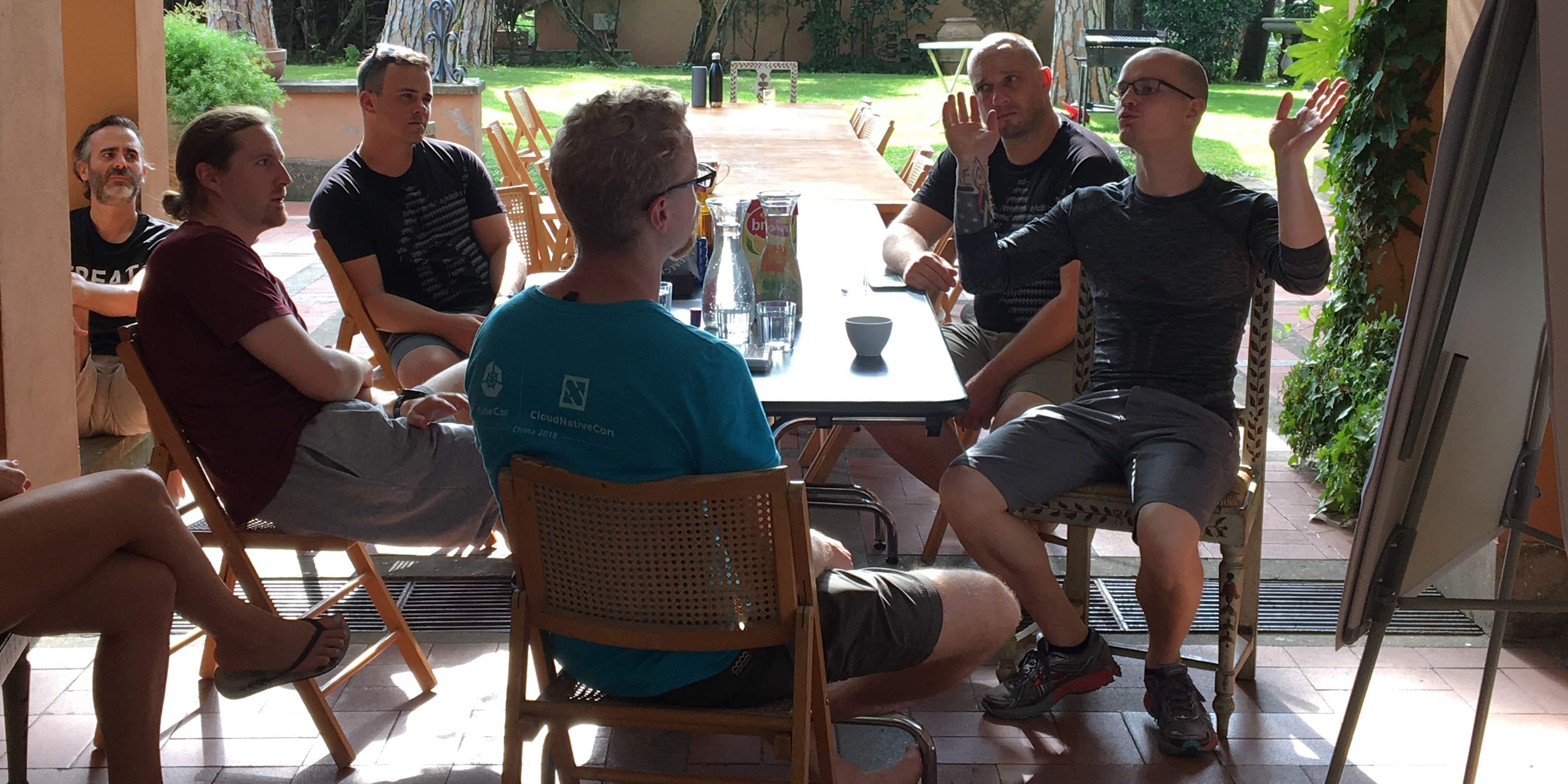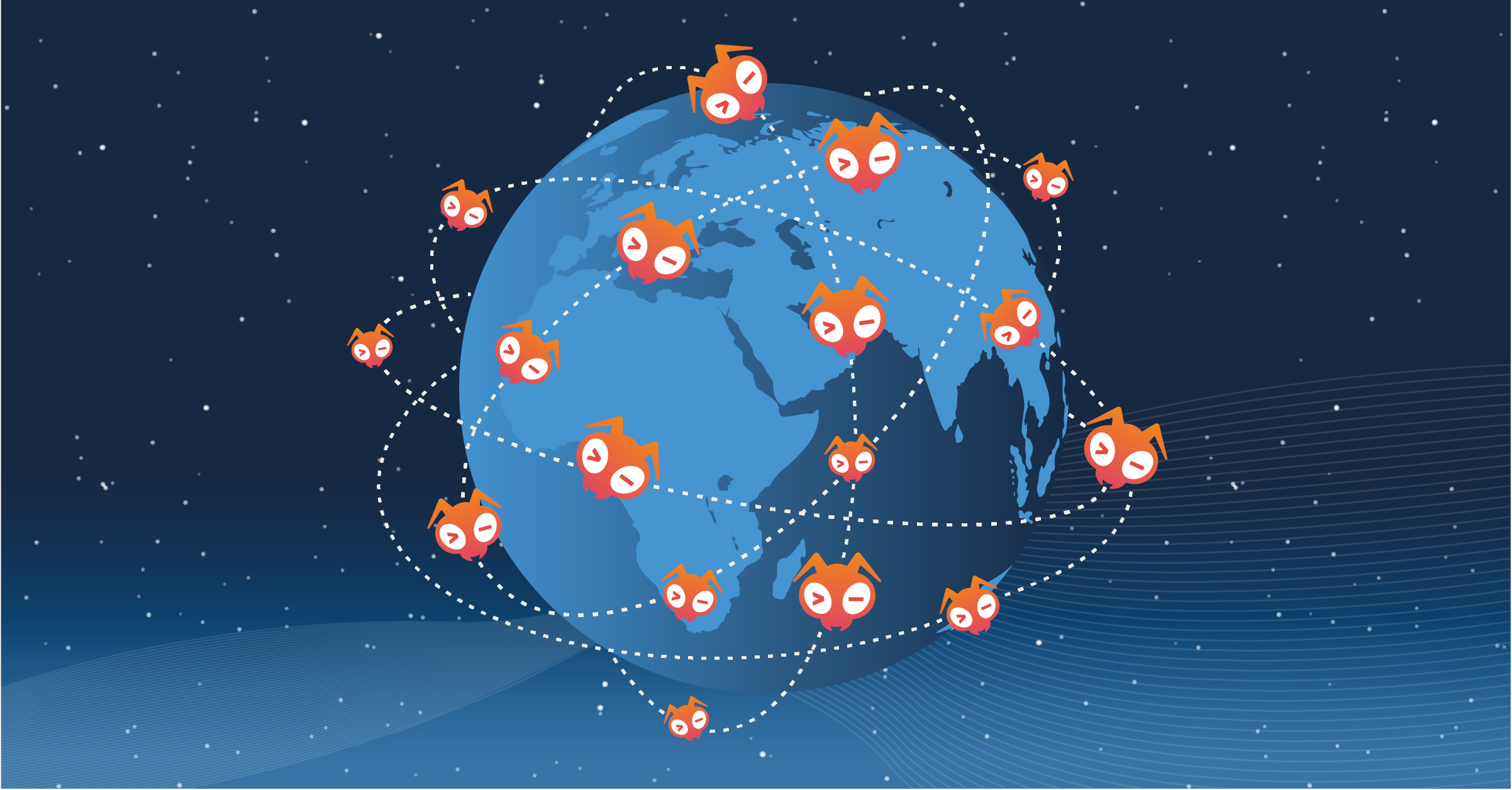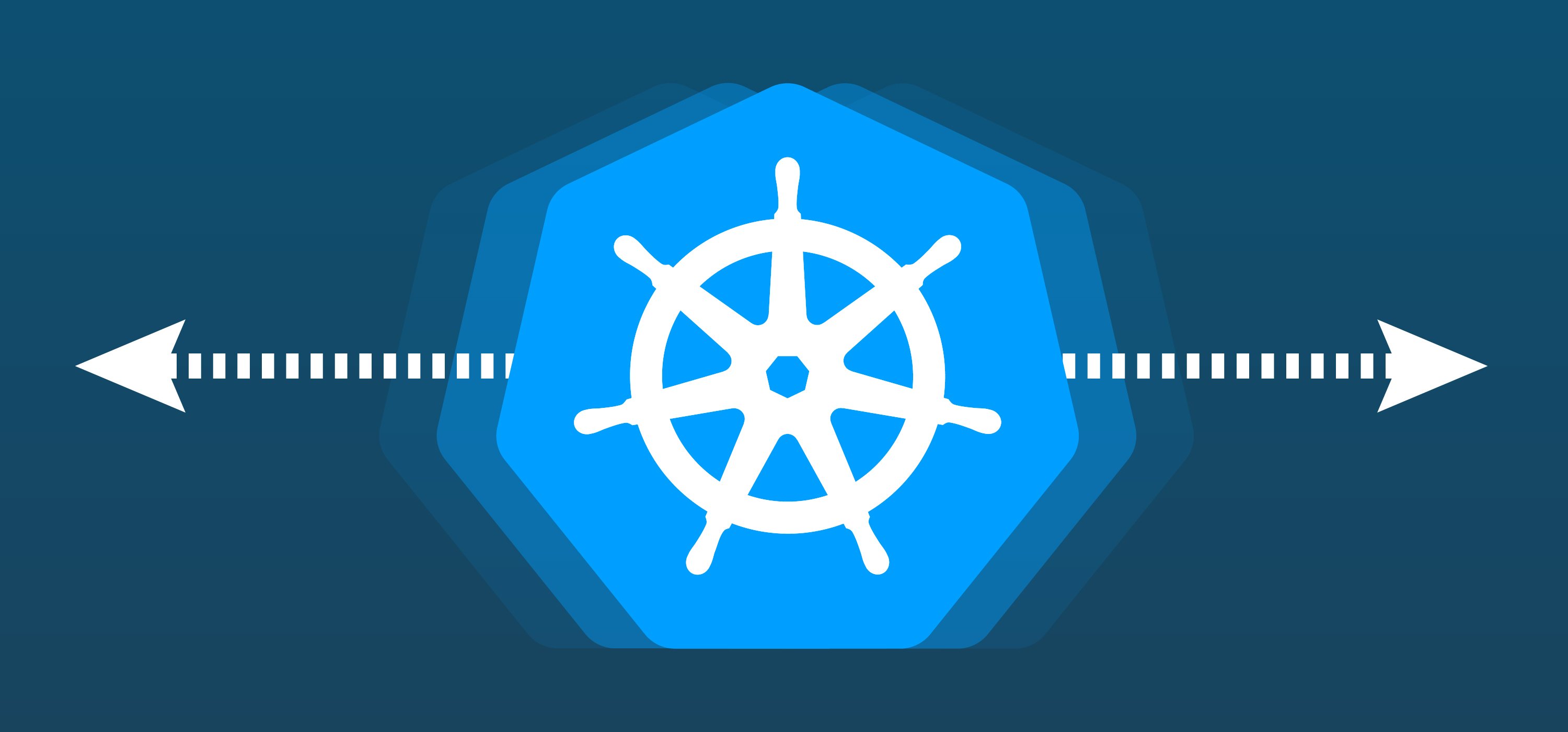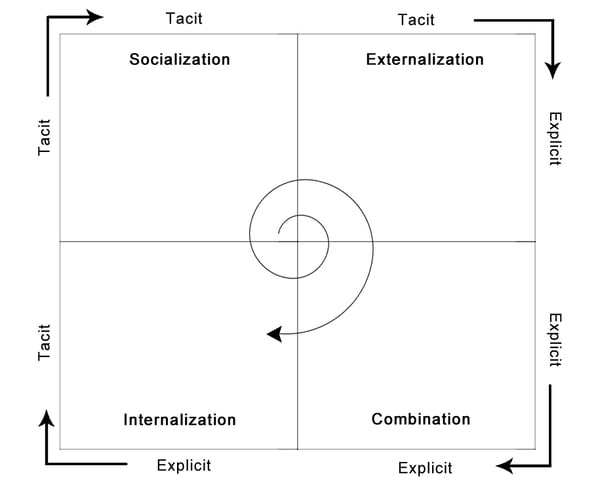Why Knowledge Sharing is Important
by Oliver Thylmann on Sep 24, 2020

We recently had an internal discussion about documentation — too much, too little, not needed, crucial — back and forth, and back again. It's a hard subject. Something drove me a little bit crazy in that discussion and I needed to revisit my MBA course for clues and possibly better ways to express my frustration.
In short, there’s a reason that we as Giant Swarm are structured the way we are structured. It hasn't just grown by itself unattended. The structure was developed on purpose and is being continuously refined. We need to make sure that we do not lose sight of this structure because many people have joined since it was first developed.
Making tacit knowledge explicit leads to lost knowledge
Or, why not everything can or should be documented and why we need to include other ways of conveying information and sharing knowledge.
In the Industrial Age, you built a process and optimized that process until you threw up.
The Ford Motor Company introduced the assembly line and optimized each step, bringing cars to the middle class. Cars had never been that cheap before. Toyota then changed things when cars, and the problems building them, became more complex and invented something around continuous improvement and open communication systems.
Building upon that Toyota way, Nonaka and Takeuchi, who studied Toyota and other companies, built the SECI model: Socialization, Externalization, Combination, Internalization.
In a system where you want continuous optimization alongside continuous knowledge building, the idea is you need to first socialize (tacit to tacit knowledge) and learn by working with a master and building up shared experiences. Through externalization (tacit to explicit) you create explicit concepts (documents, images, and procedures) for that implicit knowledge. Through combination (explicit to new explicit), new knowledge is born. Then you internalize (explicit to tacit) the shared knowledge and a new cycle starts.
One thing to note is that while in Japan, you might work for a company your entire life. In Germany, culturally, what is not written down, does not exist. In the USA, people change jobs even more quickly than in Europe. We in Europe and the USA are afraid of knowledge not becoming explicit, while in Japan, companies are much more comfortable with the implicit knowledge; knowledge that to a certain extent is locked into people's minds and out of reach of the corporation.
Interactions lead to new things and are a requirement
Or, why in many cases, the one true way does not exist.
We always talk about being in a knowledge economy but seldom integrate what this actually means. The point is that you cannot create a process or a set of documentation and be done with it. Knowledge is created, becomes old, outdated, and superseded by new knowledge constantly, and for that, a lot of people need to interact in constant loops and with chance encounters.
The important point is that the ‘one true way’ of doing things does not exist anymore and as we are talking about tacit knowledge, moving it from people to the organization (documentation that can be followed) is futile. Instead, you need to facilitate the exchange between people inside and outside of the organization. And some knowledge, like how you deal with customers, can only be learned in a master and apprentice-like model.
Once you understand this, once you really understand it, you will stop trying to document certain explicit knowledge as you have learned that too much of the tacit knowledge will be lost. Rather, we need to allow for freedom to reign and enable a large number of interactions.
Remember though that these groups of diverse people are susceptible to groupthink as time passes. You need to employ double-loop learnings and allow for disagreements through a sense of belonging.
However, considering this always; “To maximize variety everyone in the organization should be assured of the fastest access to the broadest variety of necessary information, going through the fewest steps.” — Nonaka and Takeuchi, 1995
Silo culture, blame culture, a heavy emphasis on risk and reward, bureaucracy, and poor communication are just some of the things that have been shown to work against knowledge distribution. To a large extent, Giant Swarm is different here because (as visible above) we need to share to succeed. Through our SIGs, we enable cross-departmental pollination. In our special #meta-listening channel, we actually share some of our deepest personal problems and have managed to move together with customers to a non-blame culture even in light of critical infrastructure issues. As a company, we focus on the happiness of the individual and try to limit the bureaucracy.
Knowledge is more than what you write
Or, the next level of mastery is trusting the unconscious.
To go further in the deep end, it’s now understood that your unconscious can often go further than your conscious and process things faster. It seems that we might be learning faster than we can think or even articulate. In fact, professionals sometimes make decisions that they cannot articulate.
By now, management studies have found that often the decisions successful managers make are not based on numbers but based on intuitive thinking. For this to really work, you need to be totally open to all alternatives because you have to take into account that your own biases are involved. Your own frame of reference that allows you to process the world, but it also means that you pay more attention to the things you know. To break out of your own frame of reference, you can play mind games with yourself, like saying “Yes and” instead of “Yes but”.
This topic has a lot more depth to it which might trigger a separate blog post, but for now, it’s important to show that mastery can unlock things that documentation can’t.
Read on at Our Way of Working with Customers and Partners.
You May Also Like
These Related Stories

Giant Swarm’s giant network
‘Reflection meets celebration’ is usually a good way to distill the multiple and often contradictory feelings inspired by a birthday. In other words, …

New Joiners Series: Welcome Georgiana
Welcome to Giant Swarm's New Joiners Series where we get to know some of the newest members of the Swarm. This week, we meet Georgiana Patru.

Horizontal Pod Autoscaling in Kubernetes
Kubernetes promises us a lot. One of the major benefits we get from it hosting our cloud-native workloads is a high degree of automation. In particula …
